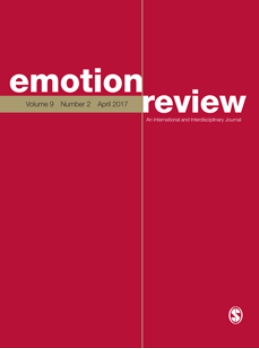Climate Anxiety: A Research Agenda Inspired by Emotion Research
IF 3.4
2区 心理学
Q1 PSYCHOLOGY, MULTIDISCIPLINARY
引用次数: 2
Abstract
Climate anxiety refers to persistent, difficult-to-control apprehensiveness and worry about climate change. Research to better understand the prevalence, indicators, causes, and consequences of climate anxiety is needed, to which emotion researchers can make substantial contributions. First, emotion theory can inform an integrative and functional theory of climate anxiety, mapping interactions between its cognitive, emotional, behavioural, and physiological indicators. Second, appraisal theories can help to understand the reasons why people experience climate anxiety. Third, emotion researchers can contribute to theorizing when climate anxiety motivates climate action, accounting for non-linearity, interactions with other emotions and cognitions, and temporal dynamics. Fourth, emotion researchers can contribute to developing strategies to cope with climate anxiety, for example, by building on emotion regulation theory.气候焦虑:一个受情绪研究启发的研究议程
气候焦虑是指对气候变化的持续、难以控制的担忧和担忧。需要进行研究,以更好地了解气候焦虑的患病率、指标、原因和后果,情绪研究人员可以为此做出重大贡献。首先,情绪理论可以为气候焦虑的综合和功能理论提供信息,映射其认知、情绪、行为和生理指标之间的相互作用。其次,评价理论有助于理解人们经历气候焦虑的原因。第三,情绪研究人员可以帮助推断气候焦虑何时会激发气候行动,解释非线性、与其他情绪和认知的互动以及时间动态。第四,情绪研究人员可以通过建立情绪调节理论,为制定应对气候焦虑的策略做出贡献。
本文章由计算机程序翻译,如有差异,请以英文原文为准。
求助全文
约1分钟内获得全文
求助全文
来源期刊

Emotion Review
PSYCHOLOGY, MULTIDISCIPLINARY-
CiteScore
6.60
自引率
3.70%
发文量
34
期刊介绍:
Emotion Review is a fully peer reviewed scholarly journal. It adheres to a blinded peer review process in which the reviewer"s name is routinely withheld from the author unless the reviewer requests a preference for their identity to be revealed. All manuscripts are reviewed initially by the Editors and only those papers that meet the scientific and editorial standards of the journal, and fit within the aims and scope of the journal, will be sent for outside review. Emotion Review will focus on ideas about emotion, with "emotion" broadly defined. The Review will publish articles presenting new theories, offering conceptual analyses, reviewing the literature, and debating and critiquing conceptual issues.
 求助内容:
求助内容: 应助结果提醒方式:
应助结果提醒方式:


